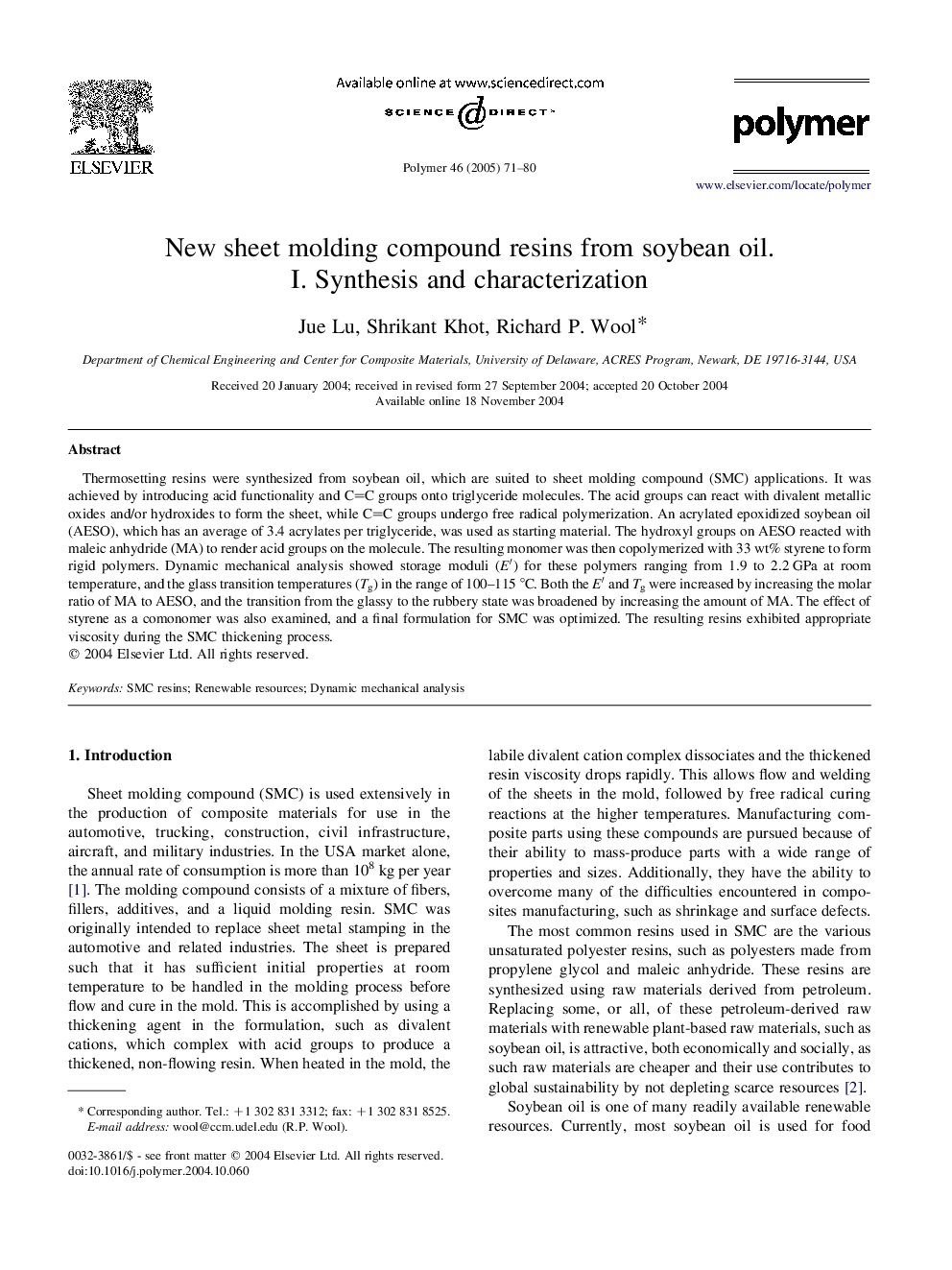| Article ID | Journal | Published Year | Pages | File Type |
|---|---|---|---|---|
| 9559757 | Polymer | 2005 | 10 Pages |
Abstract
Thermosetting resins were synthesized from soybean oil, which are suited to sheet molding compound (SMC) applications. It was achieved by introducing acid functionality and CC groups onto triglyceride molecules. The acid groups can react with divalent metallic oxides and/or hydroxides to form the sheet, while CC groups undergo free radical polymerization. An acrylated epoxidized soybean oil (AESO), which has an average of 3.4 acrylates per triglyceride, was used as starting material. The hydroxyl groups on AESO reacted with maleic anhydride (MA) to render acid groups on the molecule. The resulting monomer was then copolymerized with 33 wt% styrene to form rigid polymers. Dynamic mechanical analysis showed storage moduli (Eâ²) for these polymers ranging from 1.9 to 2.2 GPa at room temperature, and the glass transition temperatures (Tg) in the range of 100-115 °C. Both the Eâ² and Tg were increased by increasing the molar ratio of MA to AESO, and the transition from the glassy to the rubbery state was broadened by increasing the amount of MA. The effect of styrene as a comonomer was also examined, and a final formulation for SMC was optimized. The resulting resins exhibited appropriate viscosity during the SMC thickening process.
Related Topics
Physical Sciences and Engineering
Chemistry
Organic Chemistry
Authors
Jue Lu, Shrikant Khot, Richard P. Wool,
